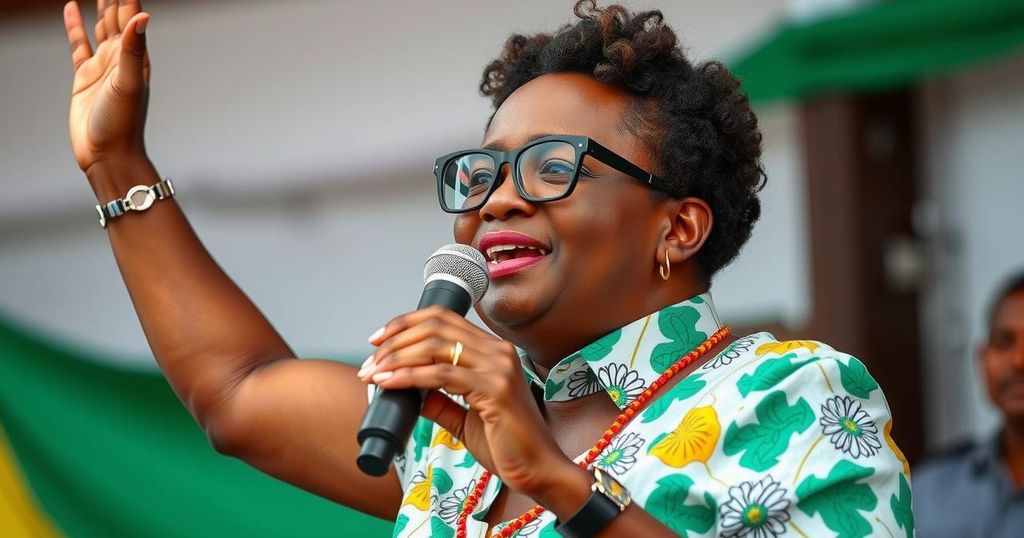Ghanaians voted in a significant presidential election on Saturday between Vice President Mahamudu Bawumia and former President John Mahama, amidst pressing economic concerns following a serious financial crisis. The election’s outcome is anticipated to significantly influence the country’s future, given the harsh economic climate characterized by high inflation and an impending IMF bailout.
Ghanaians participated in a pivotal presidential election on Saturday, between the leading candidates, Vice President Mahamudu Bawumia and former President John Mahama, in a closely monitored race. This election follows Ghana’s recent economic downturn, marked as the worst in decades, resulting in a significant debt default. With President Nana Akufo-Addo stepping down after his mandated two terms, both candidates are vying to address voters’ concerns regarding economic recovery.
The elections not only encompassed the presidential race but also parliamentary elections, as citizens expressed a desire for change amidst a challenging economic climate characterized by high inflation and a pending $3 billion IMF bailout. Voter sentiment reflected the urgency for economic reform, with individuals like retired policeman James Nsiah articulating frustrations: “We want to vote for change, the economic situation is very hard.”
The New Patriotic Party (NPP) aims for an unprecedented third term with Mahamudu Bawumia, who faces challenges related to President Akufo-Addo’s economic track record. Bawumia, optimistic about his campaign, stated, “I am very hopeful of winning this election. I think we have done a lot of work with our message to the people and the message has been well received.”
Bawumia’s campaign emphasizes the government’s ongoing digital initiatives and social programs, whereas Mahama, representing the National Democratic Congress (NDC), proposes to overhaul the economy and introduce a “24-hour economy” to generate employment. Despite his previous presidential experiences, Mahama’s bid is met with skepticism stemming from economic mismanagement critiques during his prior tenure.
As initial voting results approach, Ghanaians are closely monitoring the outcome, particularly in a politically volatile landscape where the north of the country, traditionally an NDC stronghold, is being contested more fiercely due to demographic shifts. The issue of illegal gold mining has also emerged as a major campaign topic, complicating the electoral landscape. Ghana continues to grapple with inflation, job scarcity, and a depreciated cedi currency, making the forthcoming election not only critical for governance but for the future of the country’s economic stability. Voting concluded at 1700 GMT, with early results expected shortly thereafter.
The article addresses Ghana’s tense presidential election situation, outlining the context surrounding economic difficulties that led to discontent among voters. The backdrop of the election includes Ghana’s status as a significant producer of cocoa and gold, which are vital to its economy, paired with recent financial distress marked by high inflation and a debt default. The situation reveals the electorate’s increasing demands for leadership capable of enacting meaningful economic reform amidst challenges from both major political parties.
In summary, the presidential election in Ghana reflects a critical juncture as the country confronts significant economic challenges. With candidates Bawumia and Mahama representing contrasting visions for recovery, the election outcomes are likely to shape the country’s trajectory following a period of economic hardship. Voter sentiments signify a strong desire for change, emphasizing the importance of responsive governance in addressing pressing economic issues facing Ghanaians.
Original Source: www.france24.com






